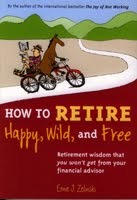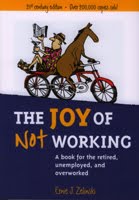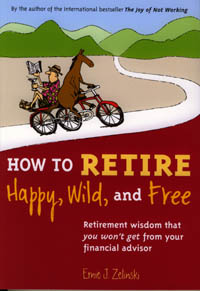
Retirement income for many low-income recently retired baby boomers or the soon-to-be retired is likely not enough and makes their retirement dreams scary.
Sixty percent of the newly retired with low retirement incomes are not confident they can pay for basic needs such as food, shelther, and water when they retire, particularly while Obama ignores reality on Social Security.
The 2010 survey by AARP paints a dejecting picture of baby boomers who are struggling financially to make the transition to full-time retirement and make their retirement incomes meet their basic needs. No need for a simple retirement calcultor.
The survey polled American baby boomers across all socio-economic backgrounds who are 45 years or older.
American adults who made less than $25,000 per annum are especially unprepared for retirement and should have a better retirement plan.
On the other hand, only a bit more than a third (36 percent, in fact) of adults who made more than $25,000 a year said they were not confident they could pay for basic needs such as water, food, and shelter and may have to resort to retirees credit card debt.
Across all income groups, 28 percent of older American baby boomers were forced to stop contributing to their retirement savings plans in the past six months,
At the same time, almost one in six American baby boomers had to prematurely withdraw from their retirement savings.
Sadly, many baby boomers admitted they had little or no retirement savings.
Interestingly, 48 percent (almost half) of all adults surveyed said they had less than $50,000 in retirement savings.
Worse yet, 16 percent of these baby boomers said they had no retirement savings at all.
More than a quarter of the baby boomers surveyed said they had to delay or put off health care and dental treatments in the past six months. More than a third (34+ percent) of the older adults said they had trouble paying for gas or transportation.
Truth be known, if most Americans and Canadians weren't so spoiled and so irresponsibile with their money, they wouldn't have financial problems in their retirement years.
Put another way, if you are a baby boomer, it's all your fault if you cannot retire at 55 or 60 because you have not attained your retirement number.
Don't blame the government or the economy or anyone or anything else.
Particularly don't resent people lived frugally and who have saved enough for their retirement years.
Here are some gambling quotes to put things in proper perspective so that you don't think that the casino is the answer to your retirement income woes:
- If you think that going to the casino is the only interesting thing to do in your retirement, you haven't read How to Retire Happy, Wild, and Free by Ernie Zelinski.
— Wise retired person
People who can afford to gamble don't need money, and those who need money can't afford to gamble.
— Anon retiree
There are two times in a man's life when he should not speculate: when he can't afford it, and when he can.
— Mark Twain
Winning a Lottery: My Retirement Plan with the Most Bugs to Be Worked Out
— Retirement Advice on The Retirement Cafe












